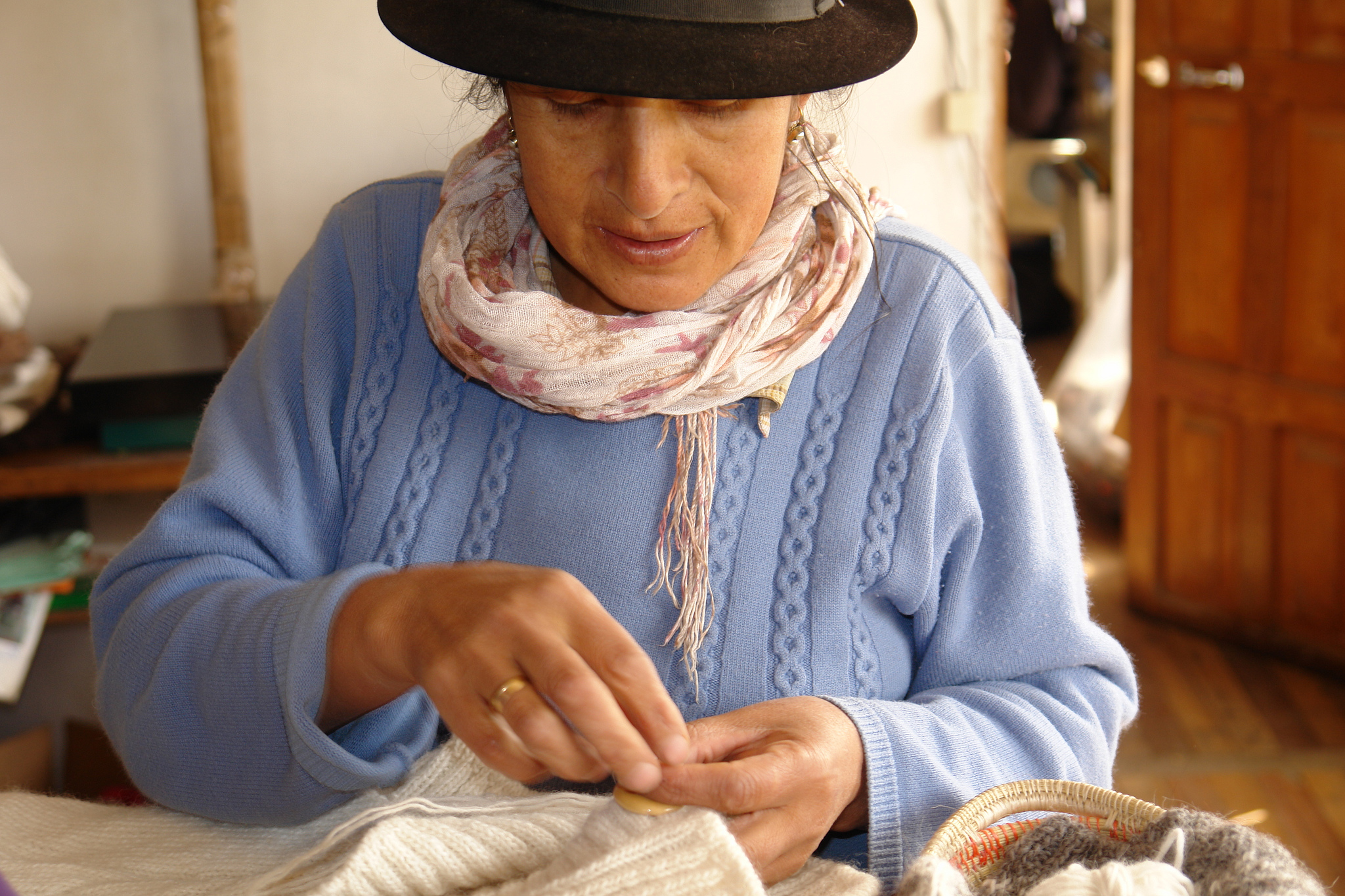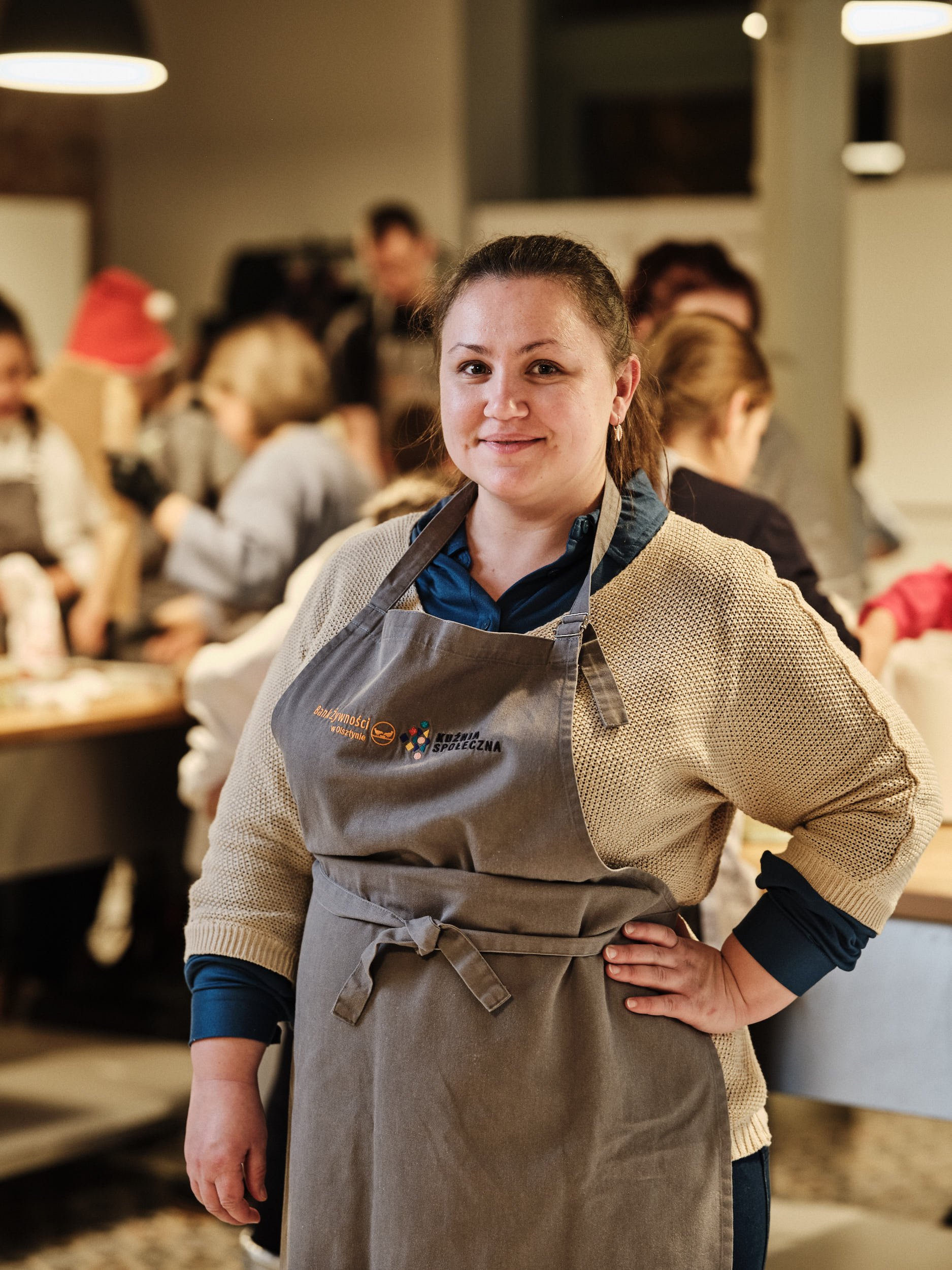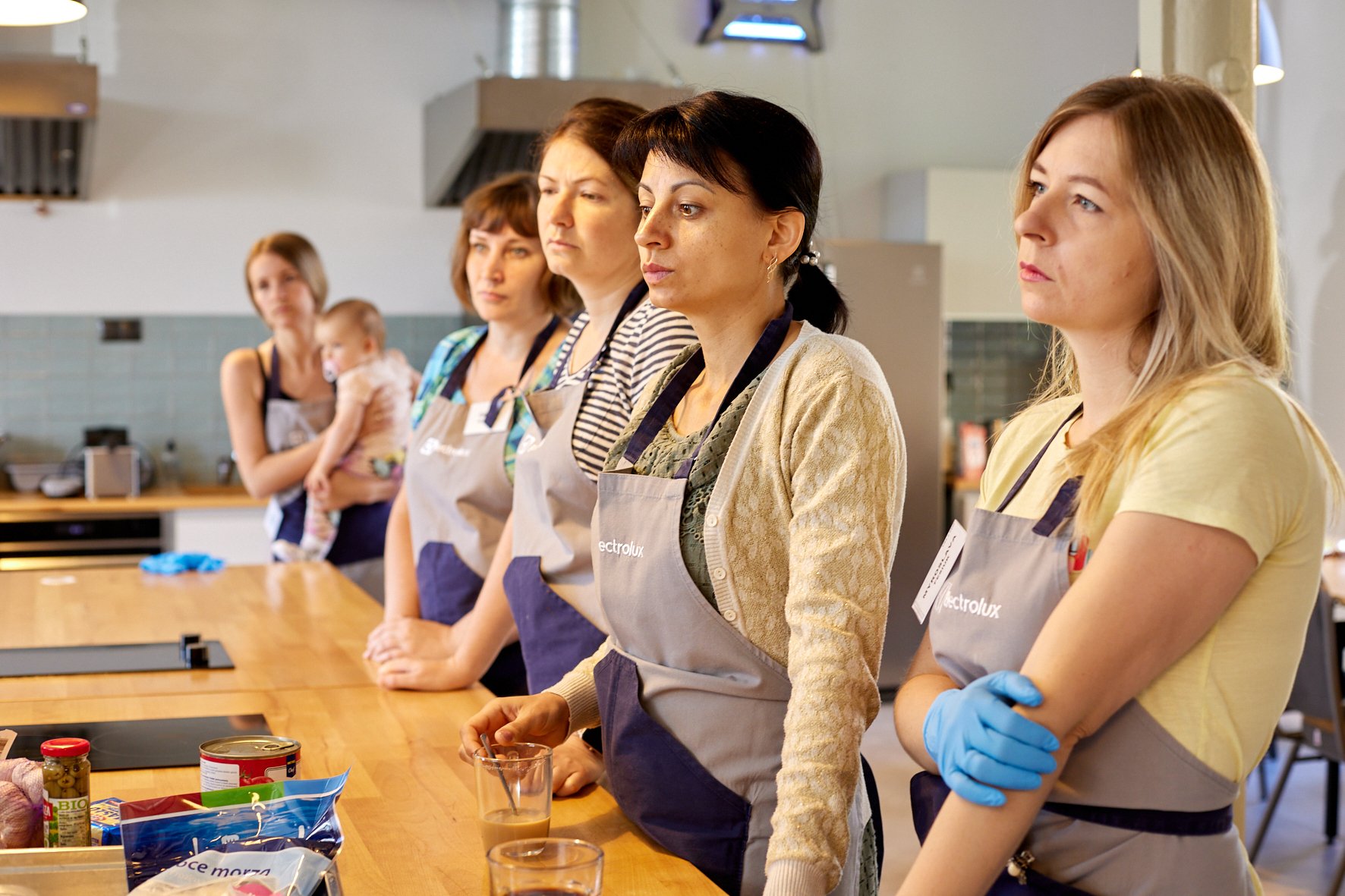This past February marks two years since Russia invaded Ukraine in 2022.
As of February 2024, an estimated 3.7 million people are still displaced within Ukraine’s borders, and 6.5 million refugees are in countries such as Poland and Romania.
The reality is, although it has been two years since the crisis began, millions of refugees in the region still need support to find dignified work that allows them to feed their families.
“Most refugees live outside their countries for an average of 10–26 years. It’s a lifetime for some people, not just a short-term proposition. By supporting businesses prioritizing refugees’ financial autonomy, we are working to promote resilience, self-sufficiency, and long-term economic growth in communities affected by displacement.”
Poland-based software development company Nebucode supports refugees to secure quality jobs in the IT sector.
Since the launch of the NESsT Refugee Employment Initiative (REI) one and a half years ago, we’ve invested in 9 impact-driven enterprises in Poland and Romania that support refugees to build transferable skills and find jobs. During their time in the REI, these enterprises have created 642 quality jobs for refugees.
Another goal of the NESsT Refugee Employment Initiative is to ensure that refugees seeking decent work have the professional and psychological support they need to access, maintain, and perform these jobs. Since the initiative’s inception, 1,736 refugees have gained access to language classes and technical training in the areas of IT, catering, and sales, among others. And more than 5,668 refugees and their family members have received additional wraparound services such as mental health support and childcare.
REI enterprise Box Elyte – manufacturer of eco-friendly cardboard boxes – hires refugees and migrants, providing them with access to accommodation, transport, and training courses.
Anastasiia and Nadiia are two women who left Ukraine with their families in search of safety and stability. They both received career support at NESsT Refugee Employment Initiative enterprise, Olsztyn Food Bank, and secured work opportunities in Poland.
Approximately 90% of the people fleeing the war in Ukraine are women and children. When the war broke out, NESsT Refugee Employment Initiative enterprise Olsztyn Food Bank (OFB) focused its efforts on supporting refugee women to find jobs.
One of these women is Anastasiia, a 20-year-old student from Zaporizhzhia, Ukraine. At the beginning of the war, she and her family initially sought refuge in the basement of their home to escape the bombings. However, Anastasiia eventually fled Ukraine with her mother and 10-year-old sister. For the first three months, they lived with a Polish family, and language was a great challenge.
Anastasiia secured employment at the Kuźnia Społeczna Restaurant, Poland.
After one year in Poland, Anastasiia participated in an 80-hour general culinary workshop hosted by Olsztyn Food Bank, a non-profit entity based in Poland that aims to save food waste and bring inclusive food solutions to the local community. One of the enterprise’s main activities is running professional culinary courses for women from marginalized groups, including refugees and migrants.
Following the workshop, Anastasiia was offered a kitchen job at the Kuźnia Społeczna Restaurant – a business line of Olsztyn Food Bank. Anastasiia completed a 3-month trial period and secured a permanent contract. She loves cooking and is learning Polish from her work at the restaurant. She shares that she wishes to remain in Poland.
In addition to providing access to training and technical knowledge, Olsztyn Food Bank supports women to find quality, flexible jobs in the hospitality and catering sectors, especially mothers and those balancing caregiving responsibilities. The social enterprise also ensures women have childcare during classes, in addition to psychological support and language courses, and helps with CV creation and job matching.
One year into the NESsT Refugee Employment Initiative, OFB has connected 57 refugee women with the open job market, employing 2 of them and placing 55 in other regional businesses in the hotel, restaurant, and catering industry. Additionally, the enterprise provided job readiness training to 49 refugee women.
“When people can see themselves growing in their jobs, they are inclined to explore positions that offer skill development and can help them propel toward their career goals.”
Nadiia, a 30-year-old Ukrainian refugee who has lived in Poland for two years, fled Zaporizhzhia, Ukraine to seek safety in Poland with her daughter.
In Ukraine, Nadiia organized events and had a passion for confectionery. After she left her country, she was happy to learn about the OFB’s culinary training program.
Nadiia has lived in Poland for two years and has taken part in several OFB culinary workshops.
Nadiia took part in four of the OFB’s workshops on confectionery and general culinary skills, and dreams of opening a café or a confectionery shop in the future. In addition to supporting OFB in preparing aid convoys for Ukrainians affected by the war, Nadiia works in the local community in positions with flexible hours that allow her to take care of her daughter.
“During my time at [Olsztyn Food Bank] I learned a lot of information that helped me adapt and integrate [into the local community], and I also took part in language classes. It felt like a warm, welcoming atmosphere where the manager and colleagues cared for us, and even the office lady spoke to us like old friends. It's comforting to feel at home and safe in such an environment,” Nadiia shared.
The NESsT team regularly engages with the refugee and migrant communities we support to gain a deeper understanding of the challenges that they face in their daily lives.
We learned that one of the main challenges refugees experience in their host countries is the language barrier, particularly in Romania, where the local language differs significantly from Ukrainian.
What’s more, as a large number of the refugee community is made up of women and children, a lack of childcare and flexible employment opportunities prevents those with family responsibilities from securing work.
Additionally, skills mismatch is widespread. Many refugees with technical skills and formal training voice difficulties in finding job opportunities aligned with their experience and skill sets. In turn, people seeking work in rapidly changing sectors like the digital sector are finding that upskilling training programs are essential to securing work that can be done remotely if they decide to return to their home country.
The NESsT Refugee Employment Initiative is still accepting applications from high-impact social enterprises that create quality jobs for marginalized communities, including refugees like Anastasiia and Nadiia. For more information and to apply, please visit this link: https://www.nesst.org/refugee-employment-initiative






















